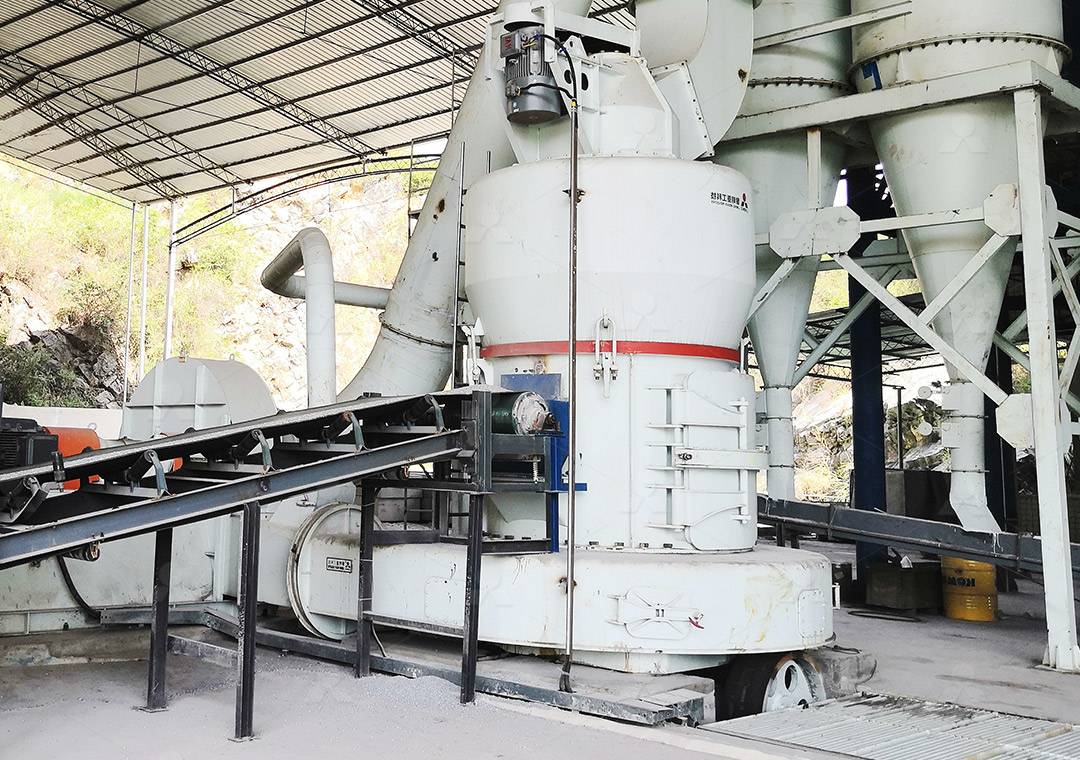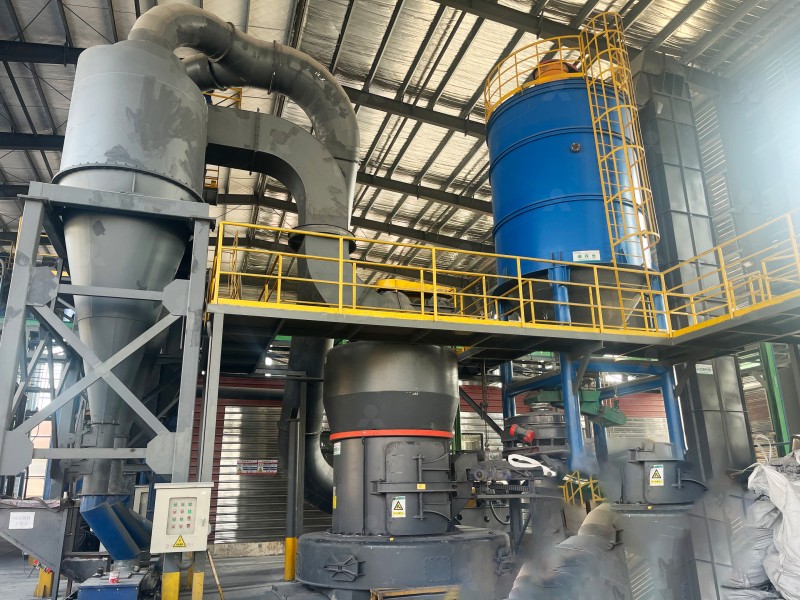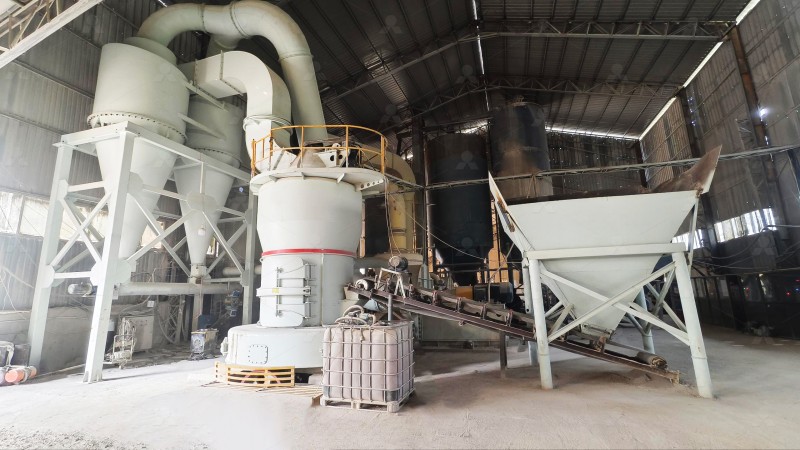High Efficiency Graphite Grinding with European Version Mill
Revolutionizing Graphite Processing: The European Mill Advantage
In the competitive world of industrial mineral processing, graphite grinding presents unique challenges that demand specialized equipment. Traditional grinding methods often struggle with graphite’s specific characteristics, including its flaky structure, lubricity, and purity requirements. The European Version Mill technology has emerged as a game-changing solution, offering unprecedented efficiency and precision for graphite processing operations.

The Graphite Grinding Challenge
Graphite’s distinctive properties make it particularly demanding to process efficiently. Its natural lubricity can cause slippage in conventional mills, while the need for precise particle size distribution requires sophisticated separation technology. Additionally, maintaining product purity is paramount, as contamination can severely impact the material’s performance in applications ranging from lithium-ion batteries to advanced composites.
Traditional ball mills often fall short in graphite applications due to excessive energy consumption, inconsistent particle distribution, and potential contamination from grinding media. The European Version Mill architecture addresses these limitations through innovative engineering solutions specifically designed for challenging materials like graphite.
Technical Innovations Driving Efficiency
The European grinding mill platform incorporates multiple technological advancements that collectively enhance graphite processing performance. The bevel gear transmission system provides smoother power delivery with reduced energy loss compared to traditional gearing arrangements. This direct drive approach minimizes vibration and maintenance requirements while maximizing operational uptime.
Advanced powder separation technology represents another critical innovation. The cage-type powder selector, incorporating German engineering principles, enables precise control over final product fineness. This capability is particularly valuable for graphite applications where specific particle size distributions directly influence material performance in end-use applications.

MW Ultrafine Grinding Mill: Optimized for Graphite Excellence
Among the advanced grinding solutions available, the MW Ultrafine Grinding Mill stands out for graphite processing applications. Engineered specifically for ultra-fine powder production, this machine delivers exceptional performance characteristics perfectly suited to graphite’s requirements.
The MW series achieves remarkable efficiency metrics, producing 40% higher capacity than jet mills and double the output of ball mills at equivalent fineness and power consumption. For graphite processors, this translates to significantly reduced operating costs without compromising product quality. The mill’s ability to generate powders between 325-2500 meshes with screening rates achieving d97≤5μm in a single pass makes it ideal for high-value graphite applications.
Notably, the grinding chamber design eliminates rolling bearings and screws, addressing common failure points in graphite processing where fine particles can infiltrate and damage conventional components. The external lubrication system permits continuous 24-hour operation, a crucial advantage for production facilities targeting maximum throughput.
Environmental and Operational Benefits
Modern graphite processing must address both economic and environmental considerations. The European Version Mill platform incorporates comprehensive dust collection and noise reduction systems that minimize environmental impact while ensuring worker safety. The efficient pulse dust collector virtually eliminates particulate emissions, while integrated silencers maintain noise levels within regulatory limits.
From an operational perspective, the digital processing and numerical control manufacturing of core components ensure exceptional precision and reliability. This manufacturing approach guarantees consistent performance and simplifies maintenance through standardized, readily available spare parts.

Application-Specific Advantages for Graphite
For battery-grade graphite production, the European Version Mill’s precise particle control enables manufacturers to meet stringent specifications for lithium-ion applications. The minimal iron contamination—a critical concern for battery performance—is achieved through advanced materials selection and innovative grinding chamber design.
In expanded graphite applications, the mill’s efficient operation reduces processing costs for this energy-intensive material. The ability to maintain flake integrity while achieving target fineness preserves the material’s valuable properties for thermal management and sealing applications.
Frequently Asked Questions
What makes European Version Mills particularly suitable for graphite grinding?
European Version Mills incorporate specialized grinding curves, advanced separation technology, and contamination-minimizing designs that address graphite’s unique processing challenges. The absence of internal screws and rolling bearings in the grinding chamber prevents graphite infiltration and subsequent component failure.
How does the MW Ultrafine Grinding Mill achieve higher efficiency compared to traditional mills?
The MW series utilizes newly designed grinding curves of grinding roller and grinding ring that enhance grinding efficiency significantly. It delivers 40% higher production capacity than jet mills and double the output of ball mills with the same fineness and power consumption, while system energy consumption is only 30% of jet grinding mills.
What fineness range can be achieved with these mills for graphite applications?
The MW Ultrafine Grinding Mill can produce graphite powders with fineness adjustable between 325-2500 meshes, with screening rates achieving d97≤5μm in a single pass. This broad range accommodates various graphite applications from conventional lubricants to advanced battery materials.
How do these mills address environmental concerns in graphite processing?
European Version Mills integrate efficient pulse dust collectors that eliminate dust pollution during operation. Additionally, silencers and noise elimination rooms reduce acoustic emissions. The systems operate fully compliant with national environmental protection standards.
What maintenance advantages do these mills offer for continuous graphite production?
The external lubrication system allows lubrication without shutdown, supporting 24-hour continuous operation. The simplified chamber design without rolling bearings or screws eliminates common failure points, while digital manufacturing ensures precision components with readily available spare parts.
